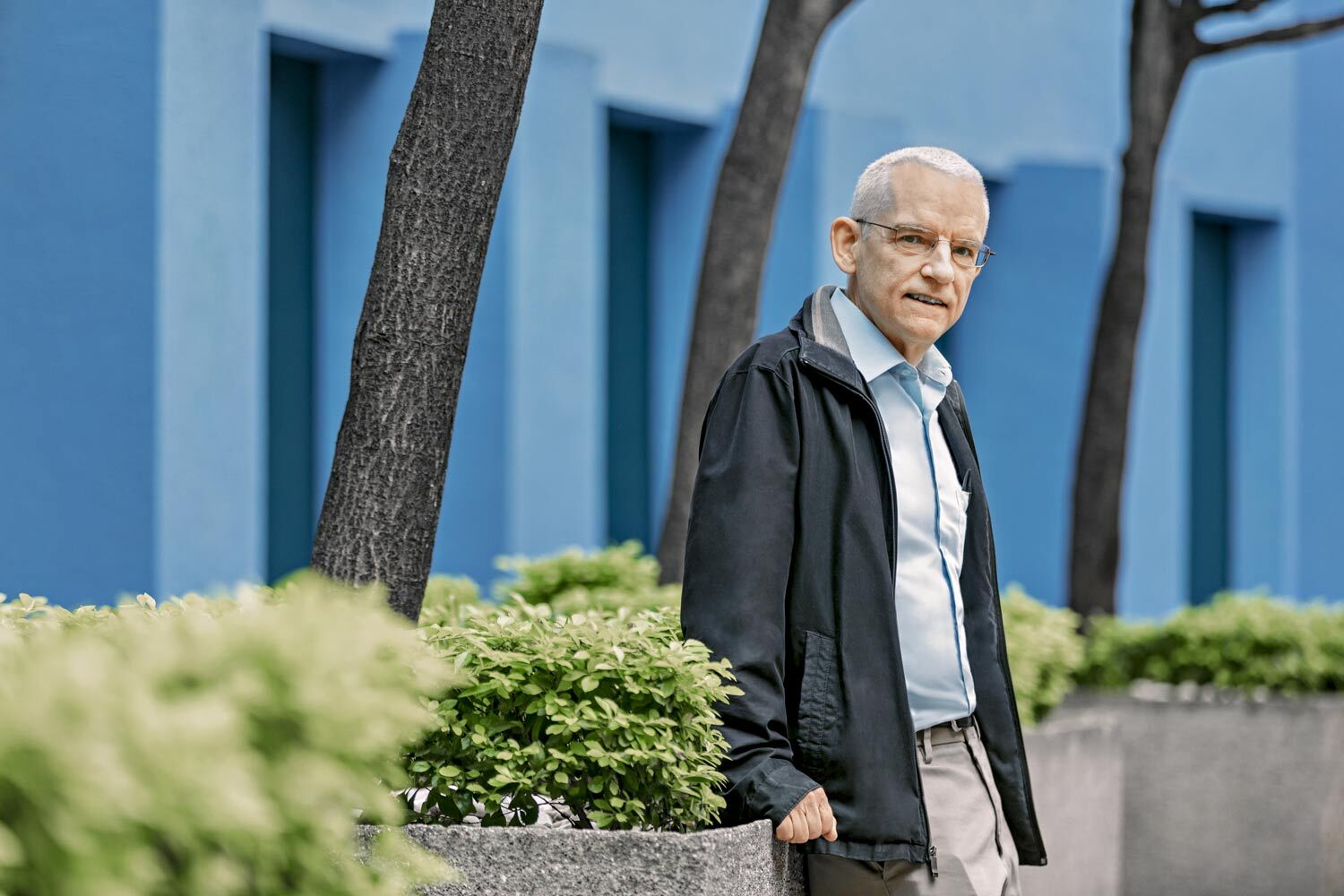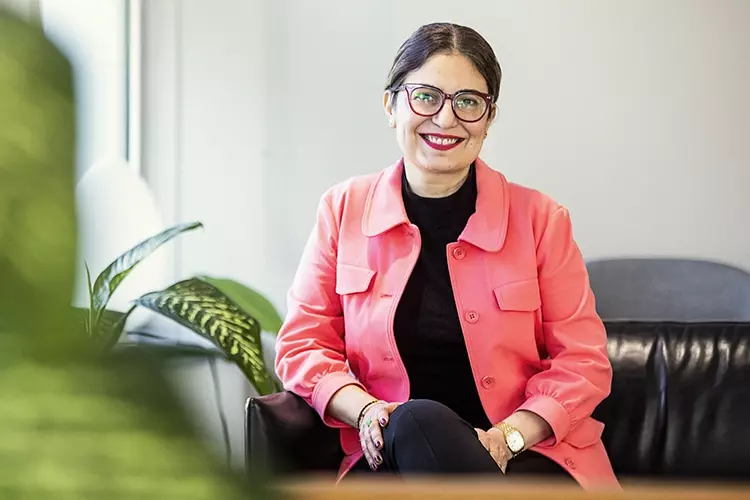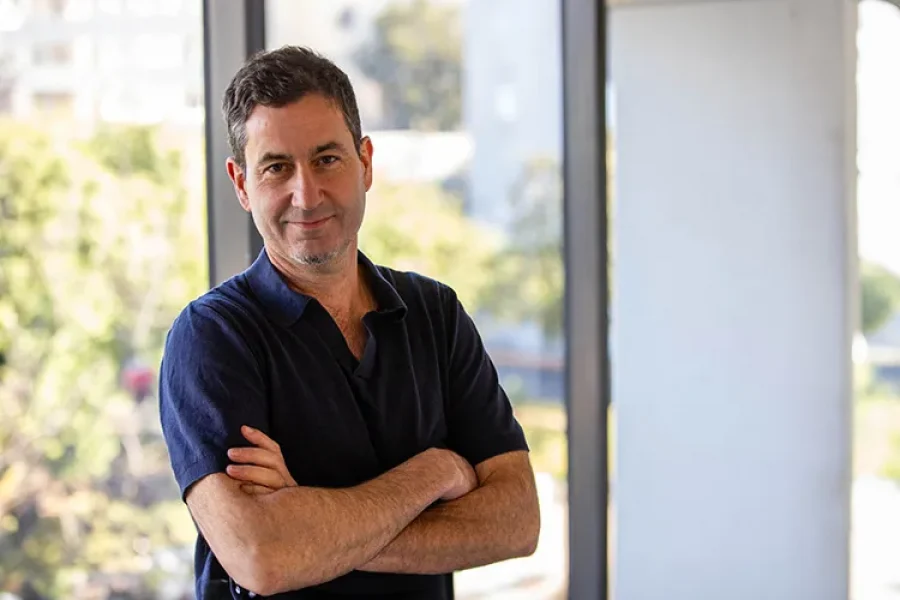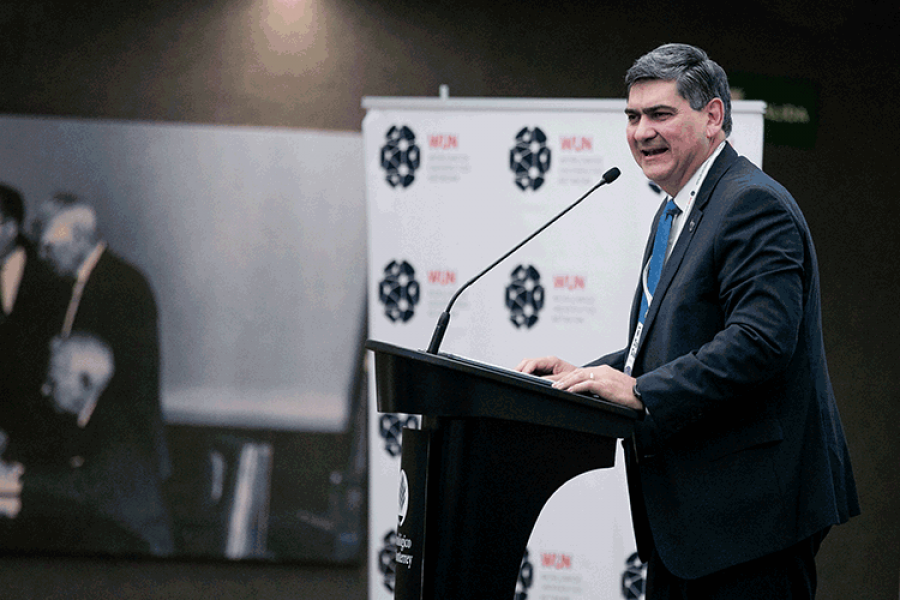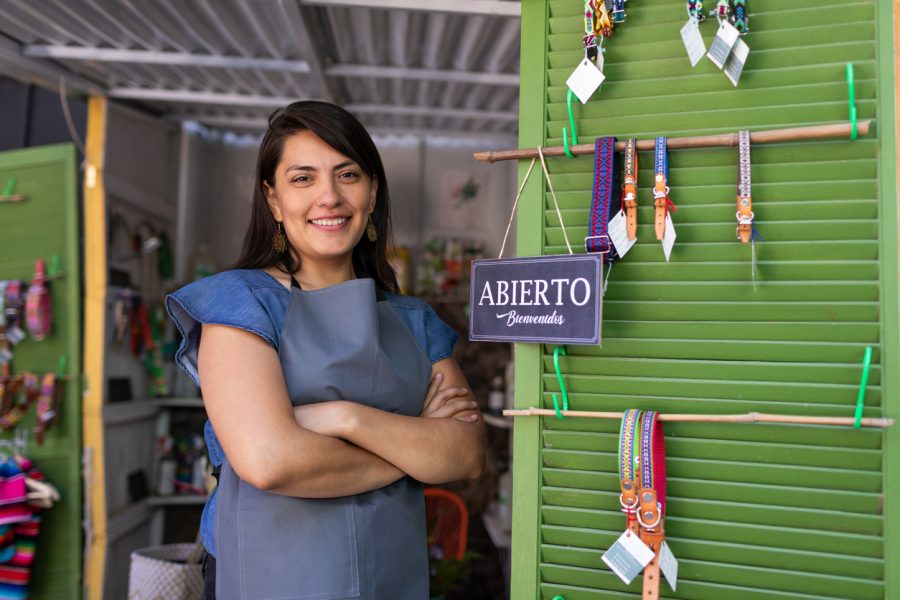Bryan Husted was born in the United States but has spent more than half of his life in Mexico. He arrived in Tijuana to participate in a community project inside the municipal dump and even though he didn’t plan it that way, he stayed in our country. For 33 years he has worked in Tecnológico de Monterrey, researching and raising awareness among his students about the importance of the human, social, and environmental side of the business.
His work –which he considers his mission’s life– consists of proposing new ways of working, so that organizations can mitigate their negative impact and contribute to a more fair and sustainable society, while seeking the human flourishing of their members.
One morning in January 2023 we met him in a room at the EGADE Business School. He is one of the most outstanding professors there, as well as the leader of the research group called “Development of conscious enterprises”. His Ph.D. students describe him as a very bright and humble person who has a lot to teach and who commits himself for as long as necessary until he finishes a project.
Husted speaks in perfect Spanish and he does it slowly, with a discreet volume. There, we talked about his beginnings in science, the importance of ethics, and how he found in the research a way to impact the world, as well as his love for the Nahuatl language.
Organizations should encourage people to flourish
Why were you interested in the study of ethics in organizations?
Because I care about the world we live in. Also, I think it’s the only thing I could do. I love it, I wouldn’t want to do anything else. It all started when I was doing a master’s degree at Brigham Young University, in Utah, and took a class in business ethics with Dr. Kirk Hart. He was the one who opened my eyes to all the damage that organizations can do… and I mean all kinds of organizations. At the time I was part of the Mormon church and realized what a negative impact a church can have. The problem is that organizations seek efficiency, not humanity.
How did you start doing research?
I set myself the task of understanding what leads to better or worse human performance in any type of organization, and what are the factors necessary to help people flourish and not crush them.
We have done a lot of research. From the basics, which helps you understand how things work, to studies with 500 companies where we notice how women on director boards positively influence in terms of social and environmental indicators. What is interesting and challenging is how to use that information.
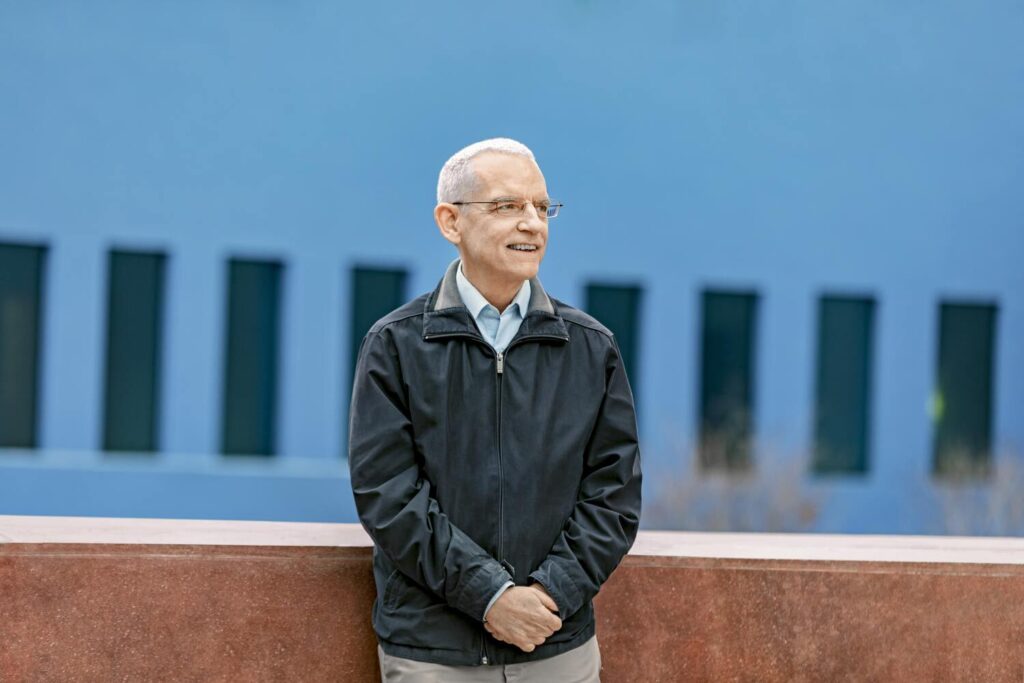
Husted has worked on about 200 scientific articles that have been published in renowned scientific business journals such as the Journal of Business Research, Business and Society Review, and Journal of Business Venturing Insights, plus a couple of books.
Last year he was included in World’s Top 2% Scientist List from Stanford University, which highlights the researchers with the most cited papers.
His articles not only contain an x-ray of the structures of business but also actions to promote ethics and support the people within them. Due to his career, in 2018 he became the first professor in Tec’s Social Sciences area to receive the Rómulo Garza Insignia Award, the main recognition for a researcher’s work, awarded by Tec de Monterrey and the Xignux conglomerate of companies.
Crossing the border
Why did you decide to live and work in Mexico?
I was a Ph.D. student at the University of California at Berkeley, and my sister Claire was in Tijuana working on a community project at the municipal dump. She encouraged me to come and join her. I didn’t know Spanish… I had only taken Portuguese classes.
Later, when it was time to look for a job, in addition to applying to universities in the United States, I thought it would be a good idea to apply my studies in another context, so I applied to three Brazilian and three Mexican universities.
None of the Brazilians answered me… the letters I sent must have been lost. But Professor David Noel Ramírez –Director of the Division of Administration and Social Sciences at the time and later Rector of Tec de Monterrey– invited me to talk.
We spoke and he made me an offer right there and then. Those were different times, and it was a less bureaucratic process. I remember him telling me, “It’s not a marriage, so if you don’t like it, you can leave.” And still, here I am.
Why did you decide to study Nahuatl?
Because it has sensitized me to the problem of non-speakers (of Spanish) and all indigenous groups in Mexico. These languages are at risk of extinction, and it is estimated that, by the end of this century, Nahuatl and almost all the indigenous languages of Mexico will no longer be spoken.
Many members of rural communities migrate to the cities in search of work, for example to Monterrey which is one of the cities that discriminate the most against indigenous people. For this reason, they stop speaking their language and refuse to pass it on to their children. I started thinking about the role that the company has in all this.
Efforts to revitalize languages have been concentrated in government, it’s seen as a matter of public policy, not corporate policy. There are many things a company can do to show respect and foster pride in these languages. I’m very interested in it and I’m preparing a book on the subject of corporate language policy, which I hope will be published in a year and a half.
What I’ve learned is that great scientists are not as great as we think. Science is a system in which many people participate –Bryan Husted
Making a better world
Is science more important than the scientific?
What I’ve learned is that great scientists are not as great as we think. Science is a system in which many people participate. I admire this system in which you propose things, test them, and submit them to a peer review process. It’s not perfect, but it’s been a robust system. I watch those who win the Nobel and it’s ok, but we must recognize there are a lot of people behind them.
If I had to choose a scientist, perhaps it would be Albert Einstein, but I believe that even Nobel Prize winners depend not only on talent but also on the work carried out by a team behind them.
What challenges have you faced in your life? Is there anything you would have liked to have done differently?
I think, instead of challenges, I have had big projects, for example writing a book. That represented a lot of work.
Many times, we don’t have all the information when we are making decisions. Now I see factors, like geography and public health, that can explain a lot of things that weren’t on my radar in the past. Perhaps I would’ve taken these issues as a base for studying the company’s behavior.
What inspires you to keep working?
The Bible says, “Love your neighbor as yourself,” but many people wonder “how?” For me, it’s through my work, it’s through understanding the problems that organizations face and proposing ways to mitigate those damages. That’s my way of loving others and I hope I leave a better world behind.
